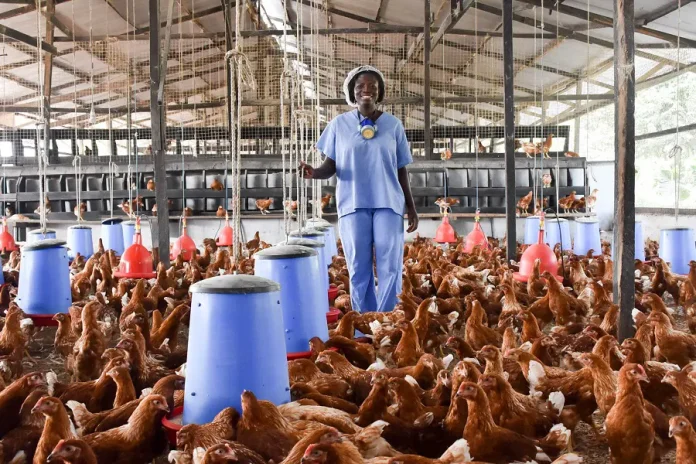PRESUMABLY, poultry farming is one of the most lucrative businesses in the agricultural value chain in Nigeria, yielding a substantial quantity of eggs and meat to meet local demands. But over the last decade, the supply of the products has come under herculean challenges that are overwhelming the poultry farmers, making the vocation increasingly less attractive to potential farmers at the moment. Reliable sources indicate that some poultry farms had shut down on account of the challenges.
The impediments include, but are not limited to the ever-rising cost of production. Two principal inputs in feed formulation, maize and soybeans, for instance, sell for between N87,000 and N90,000 per bag, respectively, while a 50kg bag of the finished feed, layer mash, for example, is sold for about N125,000, plus or minus, depending on the location.
Other variables severely militating against poultry farming are insecurity nationwide, which prevents farmers from accessing their farms or starting new ones; the high cost of eggs and chicken, causing low demand and poor sales; the high cost of electricity for lighting up the farms; increasing transportation costs; the rising cost of drugs and inadequate disease-control mechanisms; and the lack of processing and packaging facilities for poultry products.
Summing up the plight of poultry farmers in the country, the Director-General of the Poultry Association of Nigeria, Mr. OnalloAkpa, said the situation faced by farmers in the subsector “has been very bad in the last 13 years of my being in the industry” According to him, “Poultry farms, especially the medium and small-scale farms, are shutting down, and those that are still in existence, especially the industrial poultry and integrated farms, are also threatening to shut down because of operational hazards.”
Expressing her concerns over the scary development, the Delta State chairman of the poultry association, Mrs. Eunice Agha, was of the view that the industry faces imminent collapse if the government does not intervene to assist the farmers in eradicating the challenges. She enumerated flooding as a critical menace confronting poultry farmers in parts of the state.
We indeed sympathize with poultry farmers in the country over the weighty challenges they face in their struggle to keep their businesses and complement the efforts of other key players in the agricultural sector to feed Nigerians. A veritable source of animal protein, chicken production has remained one of the most profitable livestock farms in the country. Even in the face of such a pandemic like bird flu, the farmers stood their ground, with potential investors cashing in on its profitability to invest. That was then, however.
With prices of chicken products quite low then, virtually all families could afford crates of eggs and chicken for consumption. Not just on ceremonial days alone. But with the price of an ordinary old layer ranging from N7,000, a broiler from N13,000, a crate of eggs at N5,000, and an egg for N250, critical segments of the nation’s population have obviously been barred from the consumption of the nutritious products.
Yet more painful are the negative commercial outcomes of the unusually rising cost of poultry farming: businesses collapsing, lack of attraction to potential investors, and seemingly low demand for products. It will not be an overstatement to describe the poultry farming environment as hostile. A conducive atmosphere would, in our opinion, motivate millions of potential young farmers to invest in the sector. As it were, the situation should change positively.
On this account, we join the poultry farmers to advocate strategic government intervention to save the industry. The federal administration and subnational governments should take a very serious look at the issues raised and formulate productive ways to address them. We believe that subsidizing the cost of poultry production, creating access to low-interest rate financing, and developing storage facilities to prevent spoilage of feed inputs would be of immense value to the farmers.


